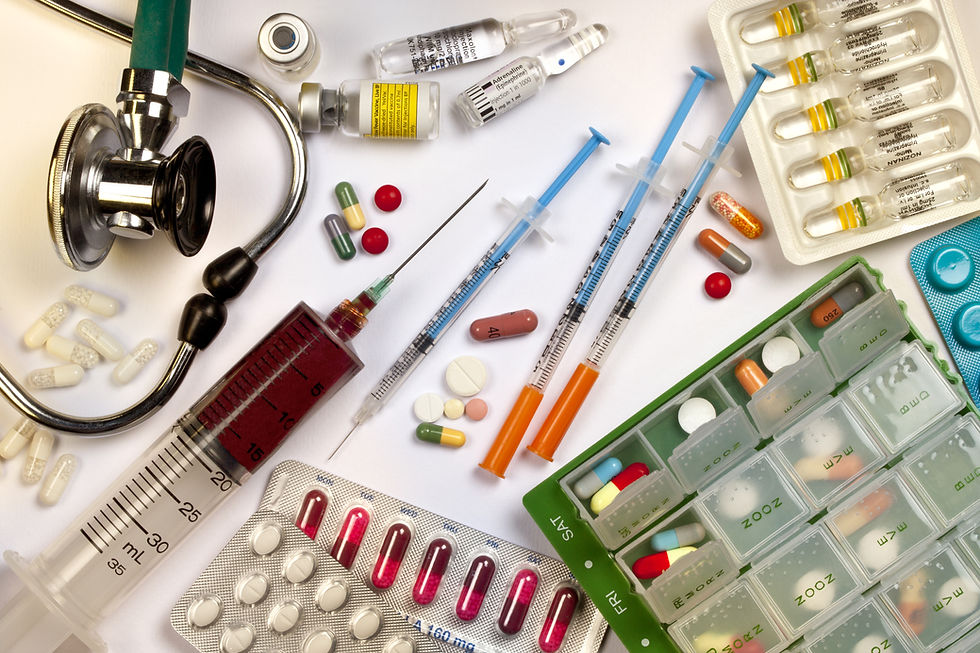Unveiling the Benefits of Pet Preventive Care: Insights and Recommendations
- Dr Andrew Matole, BVetMed, MSc

- Jan 19
- 4 min read
Introduction

In today's world, safeguarding the well-being of our cherished furry friends is of utmost importance. As pet owners, we are committed to offering them the best possible care, always prioritizing their health and wellness. While addressing issues as they arise is essential, taking preventive measures is just as vital, if not more so. This is where preventive care plans for dogs and cats become invaluable. Caring for pets goes beyond simply feeding and grooming them.

In this article, we delve into the numerous advantages of enrolling your pet in a preventive care program, which is designed to identify potential health issues before they become serious problems. This proactive approach to pet healthcare can lead to early detection of diseases, which often results in more effective and less costly treatment options. Insights from industry professionals, including veterinarians and animal health experts, highlight the significance of such programs. They emphasize that just as human medicine has shifted towards preventive care to combat chronic diseases, the same philosophy applies to the health of our pets.
The Importance of Preventive Care for Pets

Preventive care for pets involves a proactive approach to maintaining their health and preventing potential illnesses. Regular check-ups, vaccinations, and screenings can help detect issues early on, leading to timely interventions and improved outcomes for our four-legged friends. By prioritizing preventive care, pet owners can provide their furry companions with a higher quality of life and reduce the risk of costly treatments down the road.

Preventive care programs typically encompass a range of services, including routine wellness exams, vaccinations, dental care, and nutritional counseling. These services are meticulously designed to monitor your pet's health and catch any irregularities early on. For instance, regular wellness exams can help detect issues like obesity, dental disease, or skin conditions that may not be immediately apparent to pet owners. Vaccinations protect against various infectious diseases, ensuring that our pets remain healthy and vibrant. Furthermore, dental care is often overlooked but is critical in preventing periodontal disease, which can lead to more severe health complications if left untreated.

Moreover, enrolling your pet in a preventive care program fosters a stronger bond between you and your animal. Regular visits to the veterinarian allow for open communication about your pet's lifestyle, behavior, and any concerns you may have. This relationship can lead to tailored advice that suits your pet’s unique needs, promoting not only physical health but also emotional well-being. Additionally, many veterinary clinics offer educational resources and support for pet owners, equipping them with knowledge about proper nutrition, exercise, and mental stimulation—all of which are vital components of a happy and healthy pet.

Expert Advice on Pet Preventive Care

At The Andys Veterinary Clinic, we professionally emphasize the numerous benefits of enrolling your pet in a preventive care program, recommending personalized care plans tailored to your pet's specific needs, ensuring that they receive the necessary vaccinations, parasite control, and dental care. By partnering with a trusted veterinary clinic, pet owners can access expert advice on nutrition, behaviour, and overall wellness for their furry companions.
Advantages of Preventive Care Programs
Early Disease Detection: Routine check-ups can help catch health issues early, enabling prompt treatment and potentially saving your pet's life.
Cost-Effective Care: Investing in preventive care can reduce the financial burden of emergency vet visits or extensive treatments that may arise from undetected health conditions.
Long-Term Health: By prioritizing preventive care, pet owners contribute to their pet's long-term health and well-being, promoting longevity and vitality.

Recommendations for Pet Owners
To ensure your pet benefits from preventive care, industry professionals offer the following recommendations:
Regular Wellness Exams: Schedule routine wellness exams to monitor your pet's health and address any concerns promptly.
Vaccination Schedule: Stay up-to-date with your pet's vaccinations to protect them from preventable diseases.
Nutritional Guidance: Consult with your veterinarian for guidance on providing a balanced diet that supports your pet's health and vitality.
Parasite Prevention: Implement preventive measures to protect your pet from fleas, ticks, and other parasites that can jeopardize their health.

Conclusion
The importance of preventive care for our pets cannot be overstated. By proactively enrolling your beloved companions in a preventive care program, you invest in their health and happiness for years. The insights from industry professionals underscore that this approach not only enhances the quality of life for our pets but also brings peace of mind to pet owners, knowing that they are doing everything possible to ensure their furry friends lead long, fulfilling lives. Embracing preventive care is not just a trend; it is a responsible and compassionate choice that reflects our deep commitment to the well-being of those who depend on us the most.

Remember, a healthy pet is a happy pet! Join us in prioritising the well-being of our furry friends!
References
American Animal Hospital Association (AAHA). (2023). Guidelines for preventive care in pets. Retrieved from [AAHA website].
American Veterinary Medical Association (AVMA). (2023). Preventive care for pets. Retrieved from [AVMA website].
Banfield Pet Hospital. (2022). The benefits of preventive pet care. Retrieved from [Banfield website].
Cline, M. G., et al. (2021). Preventive veterinary medicine: Benefits and challenges. Veterinary Practice Today, 28(3), 15-22.
Day, M. J., et al. (2016). Vaccination guidelines for dogs and cats. Journal of Small Animal Practice, 57(6), 1-13.
Veterinary Information Network (VIN). (2023). The role of preventive care in veterinary practice. Retrieved from [VIN website].
Zito, S., et al. (2021). The impact of veterinary visits on the human-animal bond. Animal Welfare Journal, 30(2), 45-52.





Comments